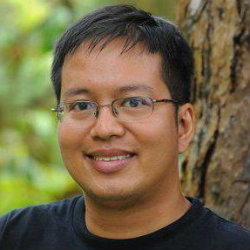Prof. Michael Purugganan of New York University has co-authored a study that indicates that all of the world's domesticated rice varieties may have originated from just a single place in China thousands of years ago. Previously, it had been thought that domesticated rice may have come from India as well as China. Using large-scale gene re-sequencing, Purugganan and a team of researchers traced the origins of domesticated rice as far back as 9,000 years ago to China's Yangtze Valley, according to a May 2
press release from New York University.
japonica and indica rice The tens of thousands of kinds of rice available in the world today are mostly varieties of either
japonica or
indica, the two major subspecies of Asian rice,
Oryza sativa. It had been a subject of scientific debate whether these two subspecies had a common origin, or developed separately in China and India. "The multiple-origin model has gained currency in recent years as biologists have observed significant genetic differences between
indica and
japonica, and several studies examining the evolutionary relationships among rice varieties supported more than domestication in both India and China," the release said. However, Purugganan's team weighed in favor of a single origin because computer-based genetic analysis showed that the two subspecies are more closely related to each other than they are to any wild rice species in either India or China.
Culture and evolution "As rice was brought in from China to India by traders and migrant farmers, it likely hybridized extensively with local wild rice, so domesticated rice that we may have once thought originated in India actually has its beginnings in China," Purugganan was quoted as saying. "Crops are plant species that have evolved in a cultural context to provide food and other products for human society. Crop species are fascinating subjects for evolutionary study, since they are examples of species that have undergone rapid diversification under intense selection pressures. They also permit us to understand the dynamic interface between genetics, evolution and human culture," he said on his
personal page.
Research collaboration Purugganan's team consisted of researchers from New York University's Center for Genomics and Systems Biology — for which he works as Associate Director — and its Department of Biology; Washington University in St. Louis' Department of Biology; Stanford University’s Department of Genetics; and Purdue University’s Department of Agronomy. Purugganan graduated from the University of the Philippines with a BS degree in 1985, earned his Master's at Columbia University in 1986, and received his Ph.D from the University of Georgia in 1993. Apart from his work at the Center for Genomics and Systems Biology, he is also a Professor of Biology and Dorothy Schiff Professor of Genomics at New York University.
— KBK, GMA News 


